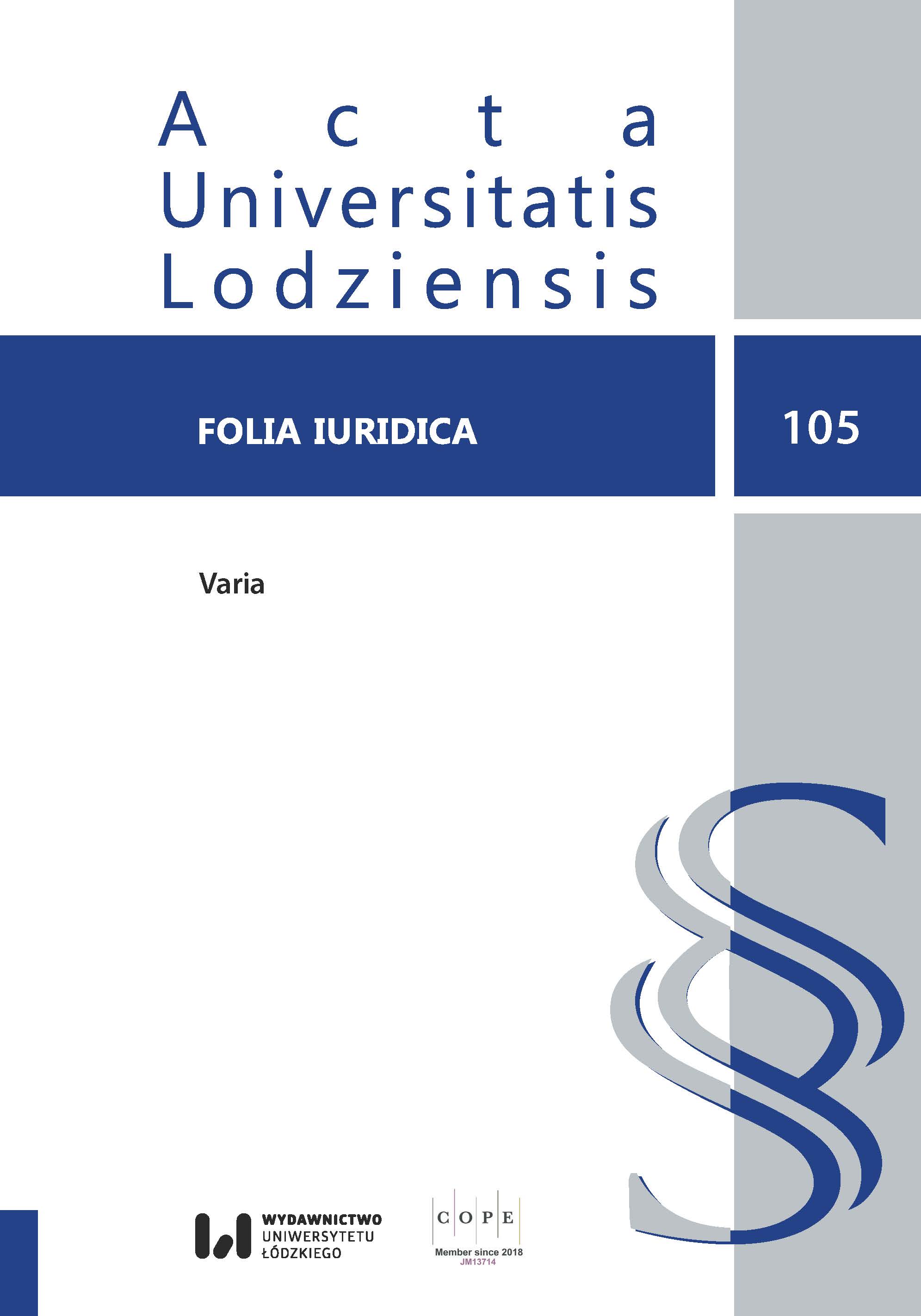From Maternal Preference to Shared Parenting: Child’s Well-Being. Lessons from the USA
From Maternal Preference to Shared Parenting: Child’s Well-Being. Lessons from the USA
Author(s): Katarzyna KamińskaSubject(s): Law, Constitution, Jurisprudence, Civil Law, Philosophy of Law, Sociology of Law
Published by: Wydawnictwo Uniwersytetu Łódzkiego
Keywords: divorce; separation; custody; parenting; child's welfare
Summary/Abstract: The article concerns parenting after divorce or separation within the context of social changes. Special attention is paid to the principle of the welfare of the child, which is the most important criterion for deciding child custody. The child’s welfare is an open concept that grants a wide discretion to courts in choosing the best custodial arrangement for a child in a particular case. In this context, reference was made to the American experience on parenting after family break-up, separation or divorce. In the USA different theories were developed to explain which parenting model best fulfils the principle of the child’s welfare. This article discusses the tender years doctrine, primary care-taker preference, psychological parent doctrine and approximation rule. After a divorce, a mother was usually granted custody and a father paid child-support. He was placed in the background and excluded from the daily activities of his child. Currently, the theory of mother-nurturer and father-breadwinner is coming to an end; the father is no longer the only breadwinner responsible for providing the family an adequate standard for living, and the mother is no longer primarily responsible for the duties of childrearing and household chores. The changes taking place are reflected in struggling for equal treatment in the award of custody and abandoning the stereotypical approaches based on awarding custody automatically to mothers. A significant rise in the number of parents entering into joint custody arrangements is observed.
Journal: Acta Universitatis Lodziensis. Folia Iuridica
- Issue Year: 2023
- Issue No: 105
- Page Range: 195-208
- Page Count: 14
- Language: English

